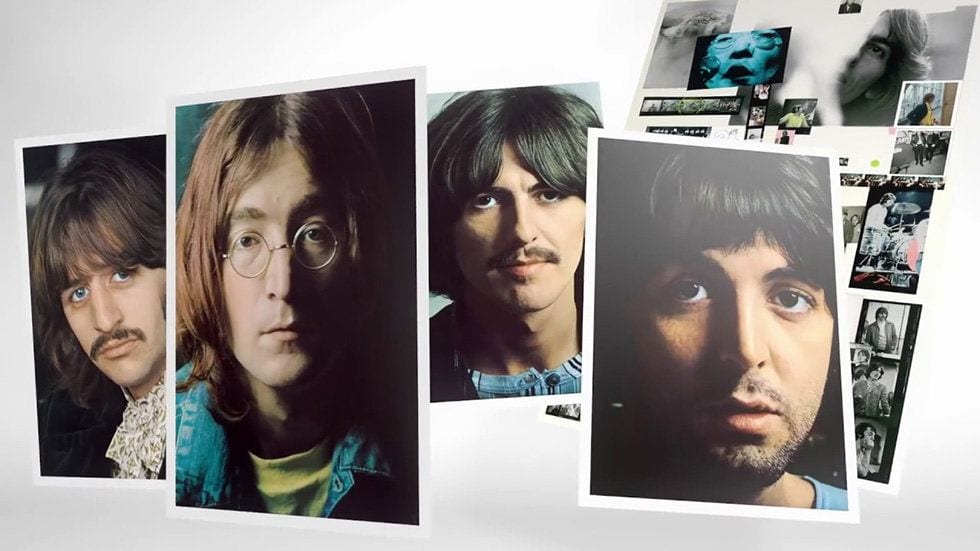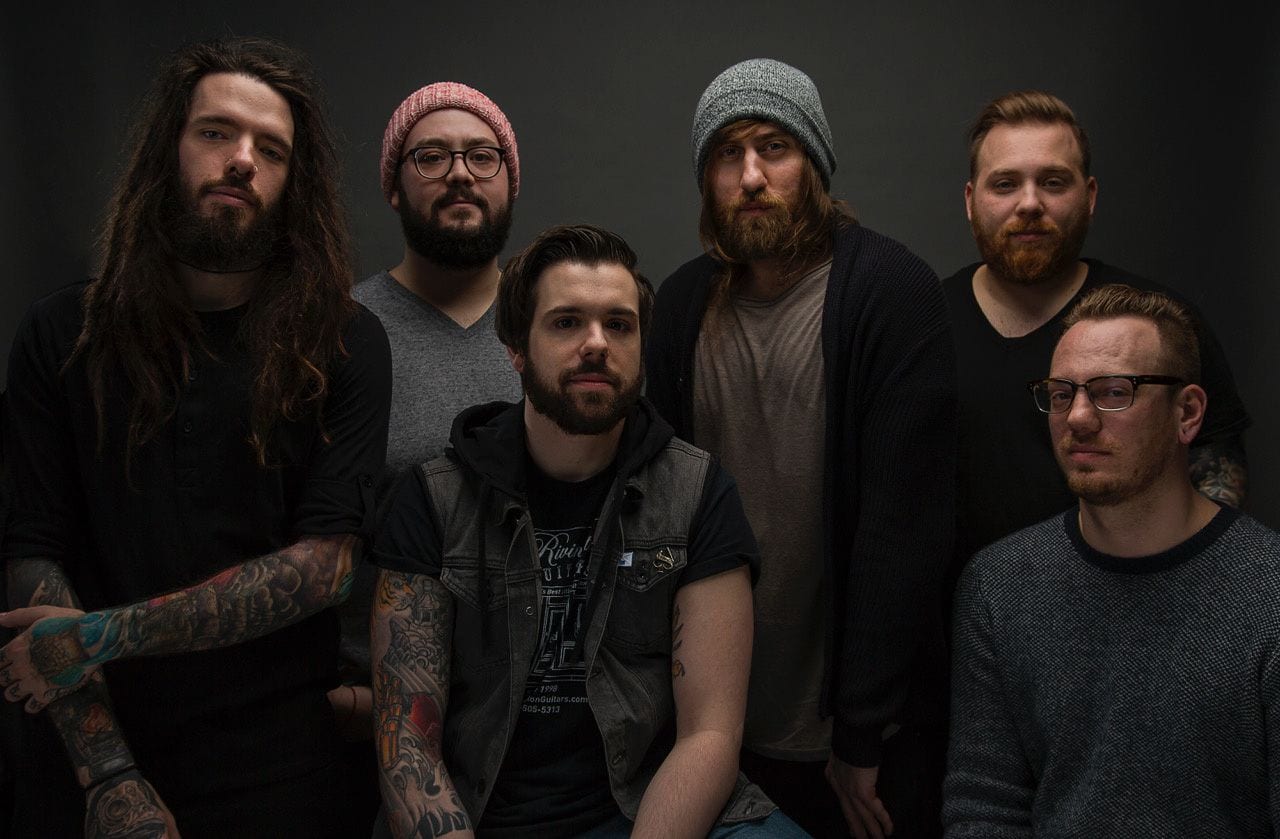
Tortoise’s Doug McCombs Untangles His Band’s Cobwebbed Past
Chicago-based post-rock icons Tortoise get nostalgic with a remix re-release, with Doug McCombs telling tales of missing tapes and giving us new updates.

Chicago-based post-rock icons Tortoise get nostalgic with a remix re-release, with Doug McCombs telling tales of missing tapes and giving us new updates.

The Beatles’ White Album was the single biggest influence on US alternative rock as it burst into the mainstream in the late ’80s and early ’90s.

Soul Coughing’s success with Irresistible Bliss shows how the early ’90s grunge music explosion led to the more expansive alternative rock boom of the mid-’90s.

Quarter Century Classix finds Ben Lee tackling songs from the 1990s, including pieces from Pavement, the Breeders, Sonic Youth, and Guided By Voices. "What's funny about this generation of music... is that because that was my formative music, it was also something I had to push against at a certain point."

Brooklyn sextet Glass Lungs upsets expectations with gorgeous soundscapes, soaring choruses and unexpected twists and turns on their debut, Impermanence.

Chicago post-rock trio Lume carries listeners through a long night of the soul on superb new album Wrung Out.

At face value, the idea of an acclaimed alternative rocker who made her mark in the ’90s recording an album of songs by an iconic ’70s adult contemporary star seems something out of the left field. That was probably the reaction from most rock fans when it was announced that Juliana Hatfield was releasing
Juliana Hatfield Sings Olivia Newton-John, a tribute album to the aforementioned singer best known for such hits as “I Honestly Love You”, “Hopelessly Devoted to You”, “Magic”, and “Physical”. By judging the results, however, it seems natural to Hatfield, as she grew up a Newton-John fan since the mid-1970s.
Juliana Hatfield Sings Olivia Newton-John mostly covers the late ’70s/early ’80s hit-making period of Newton-John when she made the transition from country music ingenue to mainstream rock/pop star (a career turn that Taylor Swift similarly followed decades later). Applying her own signature indie rock sound with a fresh spin, Hatfield infuses new life not only on many of Newton-John’s classic hits for the album but also unearths some deep cuts, such as “Make a Move on Me”, “Totally Hot”, and “Suspended in Time”. Devoid of any irony, it is a sincere tribute from a fan to her childhood idol. (Proceeds from the sales will go to the Olivia Newton-John Cancer Wellness & Research Centre).
In addition to the covers album, the always-prolific Hatfield is also reissuing her 1992 debut album,
Hey Babe, as a limited-edition vinyl; it was originally released shortly after the breakup of her band the Blake Babies. The spirited-sounding album featured appearances by Lemonheads’ Evan Dando, John Wesley Harding, and the Minutemen’s Mike Watt.
Ahead of the release of Juliana Hatfield Sings Olivia Newton-John, Hatfield recently spoke with PopMatters about making the covers album and reflected on Hey Babe 25 years after its debut.
What was your earliest recollection of Olivia Newton-John’s music?
When I was a girl, I had her album Don’t Stop Believin.’ I just remember that album always being in my record collection. Then after that, I was mad for Grease when that movie came out. I just loved the movie and the soundtrack. It then continued: the Totally Hot album, I loved Xanadu, and the Physical album—those five albums were very big in my life.
Fast forward to last year: you purchased a ticket to see Olivia perform live on stage, but the show was postponed due to her cancer relapse.
When she canceled the show I was going to see, the idea popped into my head of recording an album of her songs. I’m not sure why. I guess maybe it was something that I had thought of in the past. I couldn’t experience her in person, but I wanted to have the experience of being closer to her. So I got to know the songs. I got close to them in a way that I hadn’t before by getting my hands on the chords and stuff, trying to tackle all those melodies and arrangements.
Certainly the cover songs have your sonic imprint all over them, but your versions stayed essentially true to the spirit of the original recordings.
I took some liberties with the feel. The three that we most changed were “Totally Hot”, “Dancin’ ‘Round and ‘Round”, and “Make a Move on Me”. When I’m recording a cover song, I don’t approach it like, “How can I make this weird? How can I mess this up? How could I radically dismantle this?” It’s more like, “I have a feel for the song”, and sometimes a new arrangement or a restructuring will reveal itself to me. It’s a really organic, natural process for me. The songs that I stayed true to — it just seemed to make the most sense not to try to mess them up too much, because there was no need for it.
Like with “Dancin’ ‘Round and ‘Round” — I sped it up and rocked it up. The same thing with “I Honestly Love You” – that’s another one that I kind of reworked. I think it’s a little bit too sentimental for me, so I put some grunge into that — and grunge in the old-fashioned sense of the word, like some dirt and chunks and grime — because that how I was feeling the sentiment for that song; the frustration of not being able to be with the person that you love.
Did you have criteria in selecting the songs?
It was stuff that I knew. I was choosing [songs] from those five albums that I know well and spent the most time listening to. And then it was either the songs that I liked or the songs that I liked the most, or the songs that I think I can shake up a little bit and give a new spin, like “I Honestly Love You”, “Dancin’ ‘Round and ‘Round”, or “Totally Hot”. The songwriting is still great, and there’s something in them that I thought I could make the songs my own.
Were there other Olivia tracks you considered but didn’t end up on the record?
We actually [worked on] “Suddenly,” her duet with Cliff Richard [from the
Xanadu soundtrack]. It was really tricky. There were a whole lot of chords, and then a lot of arranging to do, lots of instruments and keyboards — and then the question of who would sing the duet with me. It became too complicated, and I put it aside. Maybe at some point, I’ll go and try to finish it. There was another song I wanted to do called “Never Enough”, which I forgot I wanted to do when we were recording the album. It totally slipped my mind that I wanted to do that one… now I’m kicking myself. We could’ve done that one really well.
What was your reaction when Olivia recently offered praise about your renditions via social media?
I was just really happy. I was kind of giddy for a minute. Her music was such a huge part of my life. It was kind of a mindfuck actually to hear something from her about me. It was great. My goal in doing this was not to get a reaction from her. I really wanted to do it for myself and for other people who love her. And so hearing from her was an extra added bonus.
Do you think your covers album will perhaps reshape people’s opinions – especially from rock fans – about Olivia that goes beyond her being generally viewed as a pop/adult contemporary artist?
That would be great. I’m already seeing a little bit of that reaction from certain people on social media, people revisiting her music or rethinking it. I took the songs seriously, and I approached them from a serious place, trying to make sense of the recording of these songs. I feel there’s a lot of good heart and soul in those recordings and I wanted to express some of that. She’s one of the biggest selling artists of all time, so clearly there’s a lot of people who love her, and understandably she’s very lovable.
Also coinciding with your new album is the reissue of your debut solo record, Hey Babe, as a limited-edition vinyl. It still sounds great after 25 years. What are your thoughts about Hey Babe today?
I thought, “What a crazy bass line Mike Watt came up with.” I don’t know how to describe it, but it’s mental, on the song “Get Off Your Knees.” I think of little things like that. I’m glad it doesn’t sound dated. I don’t think the production places it in any particular era sonically, and I’m really glad about that because I think it does hold up as music. You can listen to it now and still enjoy it.
What was the experience like going into making that first solo record after the breakup of the Blake Babies?
I was terrified. I was really scared to be on my own without the cushion of the other band members [John Strohm and Freda Love Smith]. It was all on me, and my name was going to be on it. I didn’t know if I could pull it off. And even after I made the album, I didn’t think I had done a very good job. It’s really hard for me to become a solo artist. I feel like I’m getting a little better at it, finally. When you’re in a band, it’s like a gang, and you’re protected: it’s like the three of us against the world. On your own… you have to take all the criticism yourself, and you have to answer all the questions yourself. But I was compelled to make records, so I had to do it.
You have been a relatively prolific recording artist with about 14 solo records—and that’s not counting the records from your other band projects like the Juliana Hatfield Three, Minor Alps, the I Don’t Cares, and Some Girls. These days, if a musician turns in an album every three or four years, that would be considered fairly consistent. How do you do it?
I can’t afford to put out records every three or four years. It’s my job, and if I don’t work, I don’t pay my rent. I actually have to make records because that’s how I make my living. It’s what I do, and I love doing it. I love making records. Why do I wait four years if I don’t have to? I think it’s easier for me to put a record out every year because I don’t have a huge machine churning behind me; there’s not a team of people who have to book a tour a year in advance, I could make a record next month and put it out the month after that, because I’m free like that. And so I make records.

No security, no sanitation, no backstage services (no backstage), this small, cramped, decrepit shack at the end of a dirt road in Lawrence, Kansas was an essential stopover for the offbeat underground music scene.